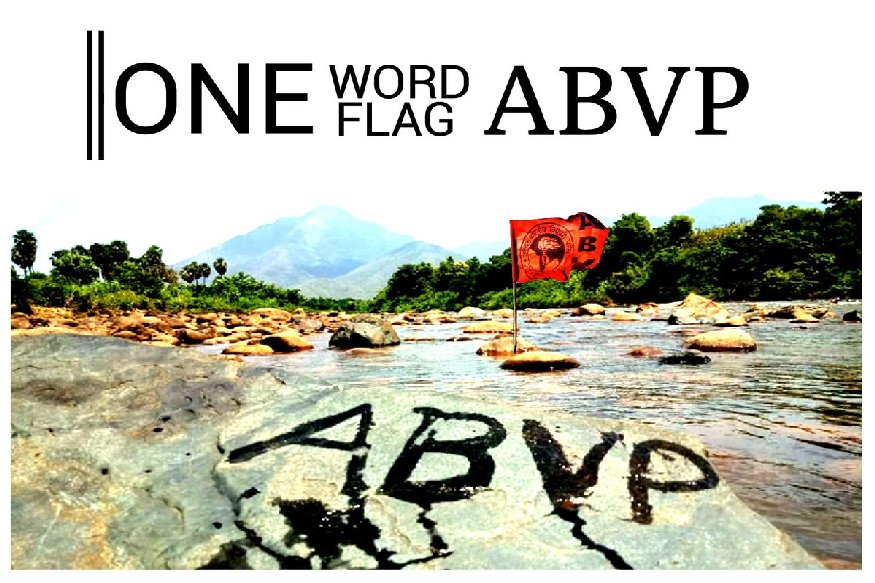


Akhil Bharatiya Vidyarthi Parishad (ABVP) is a student organization that was formed in 1949 with the aim of national reconstruction through individual reformation. Now it has expanded from villages to big cities and become the largest student organization in the world. With its various programs and initiatives, ABVP continues to serve the nation and inspire students to stand up for their beliefs and the country's cultural ethos. Despite facing challenges and even sacrificing their lives, ABVP activists remain committed to their mission and continue to make a difference in the lives of students and society.
National Students Day: A Remembrance of ABVP's Legacy and Service to the Nation
Introduction
National Students Day, observed annually on January 23, commemorates the birth anniversary of Swami Vivekananda, an influential philosopher and spiritual leader who dedicated his life to youth empowerment and national awakening. This day also serves as a recognition of the Akhil Bharatiya Vidyarthi Parishad (ABVP), a student organization founded in 1949 with a mission of national reconstruction and individual transformation.
ABVP: A Journey of National Service and Student Empowerment
ABVP was established in 1949 as a student wing of the Rashtriya Swayamsevak Sangh (RSS). The organization's roots can be traced back to the pre-independence era, when students played a vital role in the national freedom movement.
ABVP's early focus was on promoting Indian culture, values, and education. Over the years, the organization has expanded its activities to include various programs and initiatives aimed at fostering leadership, social responsibility, and nation-building among students.
ABVP's commitment to national reconstruction is reflected in its active participation in social and developmental activities. The organization has played a significant role in promoting literacy, rural development, disaster relief, and environmental protection.
ABVP's Legacy of Sacrifice and Dedication
Throughout the years, ABVP activists have faced challenges and even sacrificed their lives for the cause of student welfare and national unity. However, their unwavering commitment to their mission continues to inspire students to stand up for their beliefs and the country's cultural ethos.
Top 5 FAQs on ABVP:
What is the main purpose of ABVP? ABVP's mission is to foster national reconstruction through individual reformation and empower students to play an active role in nation-building.
When was ABVP founded? ABVP was founded on July 9, 1949.
What is the current size of ABVP? ABVP is the largest student organization in the world, with a presence in thousands of educational institutions across India.
What are some of ABVP's notable achievements? ABVP has played a significant role in promoting literacy, rural development, disaster relief, and environmental protection. The organization has also been instrumental in organizing student protests and mobilizing support for various national causes.
What are some of the challenges faced by ABVP? ABVP has faced criticism from some quarters for its alleged affiliation with the RSS and its conservative stance on certain issues. However, the organization remains committed to its mission of national service and student empowerment.
Conclusion
As we mark National Students Day, we recognize the invaluable contributions of the Akhil Bharatiya Vidyarthi Parishad (ABVP) to the nation and its dedication to student welfare. ABVP's legacy of service, sacrifice, and national reconstruction serves as an inspiration to students and society alike, reminding us of the vital role that young people play in shaping the future of the country.

On the auspicious occasion of Bhai Dooj, Prime Minister Narendra Modi, Union Home Minister Amit Shah, and Union Health Minister JP Nadda extended their heartfelt wishes to the nation, celebrating the sacred bond between brothers and sisters. This festival, also known as Bhaiya Dooj, Bhai Tika, or Bhau Beej, is widely celebrated across India with love and festivity, symbolizing the unbreakable affection and dedication between siblings. The day holds great significance in Hindu mythology and is associated with the liberation of all living beings from suffering and the bestowal of happiness.

On Wednesday, April 30, Hindus will celebrate the auspicious festival of Akshay Tritiya, also known as Akha Teej. This day is believed to bring luck and success, and is considered free from all malefic effects. People often buy gold on this day as it is believed to bring prosperity and wealth in the future. Akshay Tritiya is also considered to be ruled by Lord Vishnu, who is a revered deity in Hinduism. The best time to buy gold on this day is between 06:11 AM and 02:12 PM, according to Drik Panchang.

As Diwali comes to a close, the festival of Bhai Dooj celebrates the unconditional love and bond between brothers and sisters with various names across India. This year, Bhai Dooj falls on October 23, with the tilak ceremony auspicious time from 1:14 PM to 3:29 PM. It is a time to cherish the cherished memories and create stronger relationships between siblings. Share heartfelt wishes and blessings on this day to celebrate the beautiful bond of love and togetherness.

Marking a historic moment, President Droupadi Murmu offered prayers at the Sabarimala Temple in Kerala, becoming the first serving state head to do so. She climbed the 18 sacred steps to reach the shrine and offered darshan to Lord Ayyappa, carrying the sacred bundle on her head. This visit holds symbolic significance as the president represents both Vaishnavism and Shaivism, making it a moment of unity in Hinduism.

As Diwali celebrations come to an end, the day after is marked by the auspicious festival of Govardhan Puja or Annakut. In 2025, this festival falls on Wednesday, 22 October, and is a reminder to express gratitude towards nature and the environment. Devotees prepare special offerings and decorate their homes with flowers and diyas, honoring Lord Krishna and the bounty of nature. While the article provides general guidance, it also urges readers to consult experts before implementing any beliefs or practices discussed.

The Udupi Catholic diocese has extended warm Diwali greetings, citing the festival as a symbol of moving from darkness to light, falsehood to truth, and death to new life. The diocese emphasizes India's diversity and unity in celebrating different festivals together. Sharing a symbolic story, the diocese urges people to be the candle of hope that relights peace, faith, and love in the world. The message concludes with a call to action to be the light that builds bridges of love, faith, and compassion.

The Hindu Vikram Samvat calendar marks October 22, 2025, as Gujarati New Year, a day of renewal, positivity, and joy for devotees. From early morning prayers to temple visits, sweets, and sharing warm messages, the day is a festive symbol of hope and abundance. As it falls a day after Diwali, it's also a time to open new accounts, perform rituals like Chopda Puja, and spread love, gratitude, and togetherness with family and friends.

As Diwali celebrations come to an end, Mumbai is facing a major problem of poor air quality. The city is engulfed in a thick layer of smog, with visibility reduced to minimal in some areas. The situation has been worsened by unseasonal rain, with no significant improvement in air quality. It is not just Mumbai, but several other cities in India are also dealing with pollution levels breaching the "very poor" and "severe" categories. With AQI readings hitting 380 in some areas, measures need to be taken to combat this worsening air quality situation.

Kiran Mazumdar-Shaw, founder of Indian biotech giant Biocon, met with top government officials in Karnataka, including Chief Minister Siddaramaiah, to discuss the city's deteriorating infrastructure. This follows a recent social media post where Shaw called out the government for their ineffective management and lack of accountability. With heavy rains expected in the coming days, these concerns take on even more urgency as residents brace for potential waterlogging and traffic congestion.

Hospitals in the city have reported an increase in burn cases linked to the celebration of Diwali, with over a hundred cases reported at AIIMS Delhi alone. Despite the worsening air pollution, no major increase in respiratory distress cases was seen, but senior doctors anticipate an increase in the coming days. Several patients who suffered burns during the festival recounted how even seemingly harmless firecrackers resulted in severe injuries. While most cases were minor, a total of 129 patients were treated for firecracker-related injuries at Safdarjung Hospital.